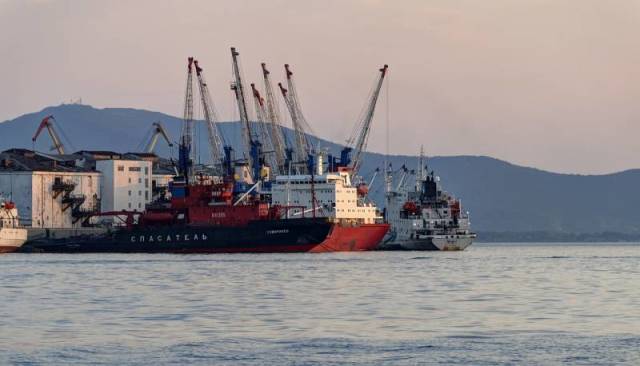
Image source: topwar.ru
As a result of the introduction of large-scale anti-Russian sanctions, the trade turnover between the Russian Federation and the EU has sharply decreased. To compensate for these losses, Moscow is taking increased steps to reorient commodity flows to the east, primarily increasing export-import cooperation with China. But, as Bloomberg writes, so far Beijing has not been able to fully compensate for the dropped volumes, primarily due to logistics problems.
Vincent Stamer, a researcher at the German Kiel Institute of World Economy, told the publication that earlier the busiest Russian port in St. Petersburg faced a drop in container turnover by 85% compared to the previous year. Such a volume of cargo traffic loss is due to the fact that the port mainly served container traffic with EU countries.
According to the German analytical center, due to the sanctions policy of the European Union, Russia loses about 24% of imports of goods monthly compared to 2021. In value terms, the monthly import deficit reached $4.5 billion. This is comparable to the drop in trade turnover that the state suffered in April 2020 due to the closure of borders due to pandemic restrictions.
— Stamer comments on the situation.
Taking into account the fall in trade turnover with European countries and to compensate for the balance of payments, Moscow is actively increasing trade with China. But so far Beijing has not been able to fully replace the export volumes that previously accounted for the European Union, Bloomberg claims.
According to a report by the Kiel Institute, this summer the EU delivered 43% less goods to Russia than a year ago. For comparison, over the same period, China exported 23% more goods to the country.
At the same time, the two largest Russian ports in the east of the country — Novorossiysk and Vladivostok — faced a reduction in incoming cargo after the start of a special operation in Ukraine. But now the situation is gradually leveling off, according to the latest data, the flow of goods through Vladivostok has recently been approaching the norm.
The sea transportation of goods with China is also gradually improving, which was disrupted due to the refusal of major European sea carriers to work with Russian companies.
— Stamer is sure.
As an alternative to the reduced sea transportation, Russia actively uses rail transport, especially through the Far Eastern regions. According to the latest report of the freight operator New Silk Road Intermodal, which serves trade between China and Europe, the railway lines to Russia are "still noticeably loaded," but the tension on the tracks is gradually decreasing.
